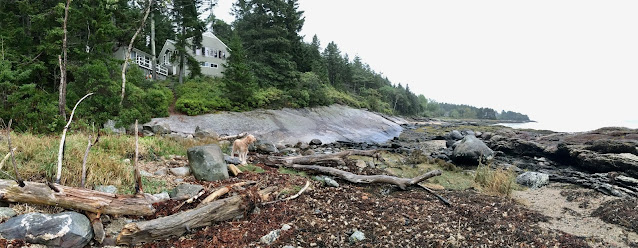too many close covid contacts compelled me to yank calvin from school. wanna get him his booster soon as possible. his immunity has dwindled over so many moons. don't want him to catch omicron or delta—or other worse versions that might yet emerge. he already has too many woes. want to avoid the hospital at all costs, too. don't want to risk infecting others. wish that were the way everyone rolled.
today is the winter solstice. i can feel it in my bones—the calm. the chill. still, these are some long-ass short days taking care of calvin alone. not much to do when it's so damn dark and cold. and now the ground is covered in snow. means we're mostly stuck indoors. means i have to practice mindfulness. focus on little things—the curve of a glass or face, the color of the sky, the smell of baking bread, the sound of creaky wood floors—and on gratitude. have to tread water a little bit longer. hold onto hope. stay upbeat. thankfully, i'm pretty good at that, though calvin's recent spate of day-long mania makes it difficult. at least at night he's sleeping.
for fourteen months i did it. at the start of this damn pandemic. same old same old—hung out with calvin at home. he can't do remote school. can't use a screen. can't watch videos. can't read books. can't play with toys. can't sit still. i feed him and dress him and bathe him and potty train him. wipe him up, too. regrettably, you've heard it all before. no teachers or aides or nurses to take up the slack. only michael and his fabulous companionship and cooking. thank goodness. something i try to forget: even when there's no pandemic, our lives are hardly different.
i turn to things that help pass the time: long car rides on back roads, baths. about all i can think of. while driving, i listen to music. note the changing light and weather and landscape. see the nuance. compare it all to last year, my memory of it. see passersby braving the cold. they sometimes smile at me and wave, make my day in doing so. i try to find delight in getting all bundled up. laugh at myself sloshing around in my oversized boots (men's treads are better.) would rather romp in sneakers, jeans and t-shirt. even in winter—perhaps especially—runs and walks in the morning and evening with smellie do me good. out where the sky is big and the sun is coming up or setting. casting long shadows. painting clouds sublime colors. out where i feel my smallness most. like the first star appearing at twilight, only tinier. and yet part of something far larger and unknown. long-ass days are good for pondering this sort of thing. it's fine there are no answers, though i'm not really looking. wonder keeps me curious and humble.
a friend shared this poem with me when she saw my photo below. and though i'm no believer in the god of organized religions, i can get behind and into mother nature. so i think of "her"—the universe and all its forces—when reading it, praising only nature. and in the spirit of mindfulness and beauty, i'll pass this morsel on to you:

















